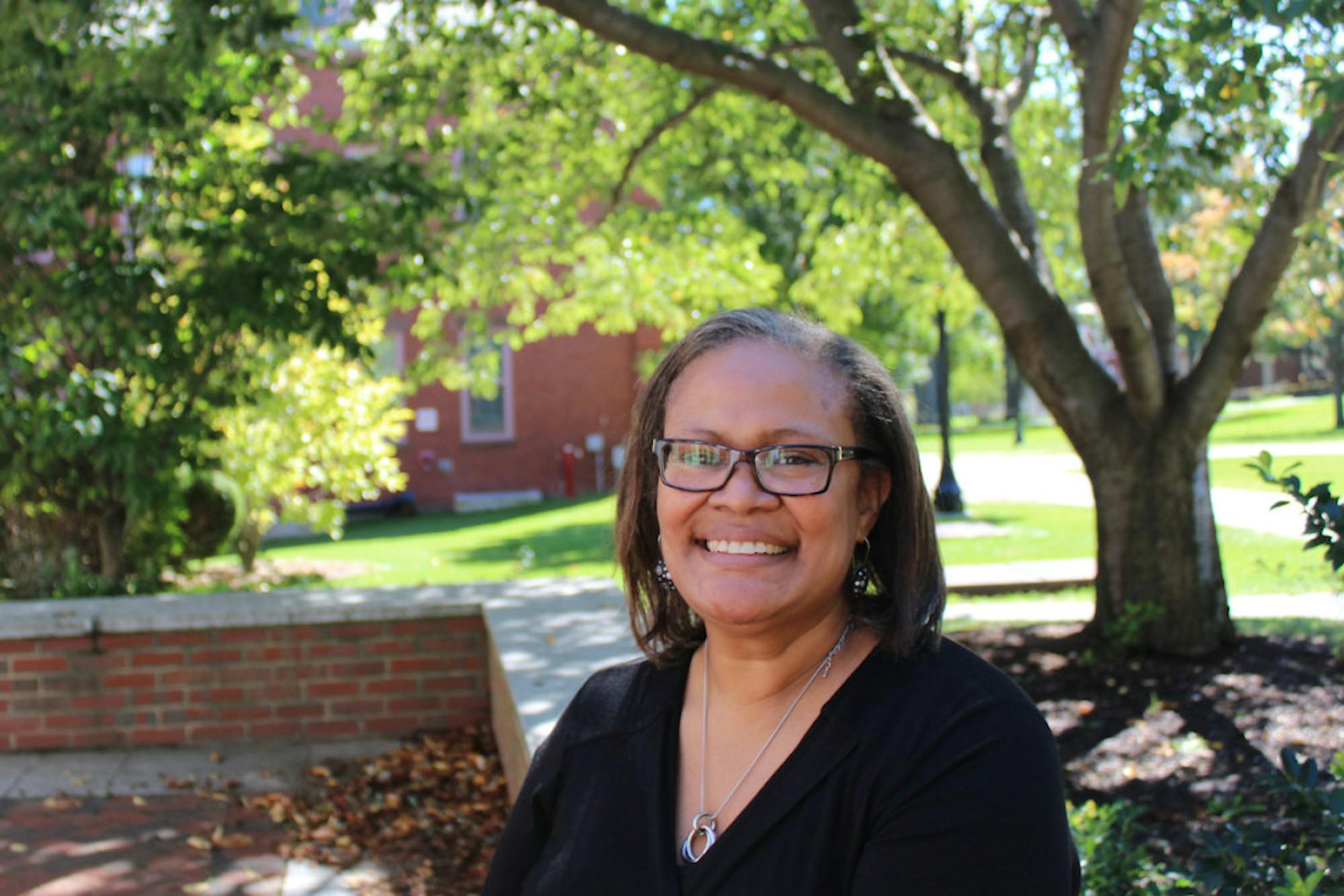Karen Richardson, formerly the associate director of graduate admissions, replaced Lee Coffin as the dean of undergraduate admissions in July.
Richardson was selected in June after a national search by a committee comprised of a range of faculty members, Tufts administrators and student representatives, according to Dean of the School of Arts and Sciences James Glaser, who co-chaired the search committee alongside Dean of the School of Engineering Jianmin Qu.
In her inaugural year as dean of undergraduate admissions, Richardson said she plans to support the university’s existing diversity outreach programs and expand one of them, Voices of Tufts Diversity Experiences, into two programs: one for the School of Arts and Sciences and one for the School of Engineering.
Richardson first came to Tufts in 2008 as the director of diversity recruitment, a position that is at the core of developing a diverse student body, according to Jeffrey Taliaferro, associate professor of political science and co-chair of the Committee on Undergraduate Admissions and Financial Aid.
"The role of the director of diversity recruitment is to ensure that the School of Arts and Sciences and the School of Engineering matriculate a diverse student body -- that the student body of Tufts University is reflective of the diversity that we see in the U.S. population and the world at large, insofar as we're able to do so," Taliaferro said.
In 2009, as part of her efforts to improve diversity on campus, Richardson revamped an existing program called Telescope to become Voices of Tufts Diversity Experiences. Voices introduces prospective students from across the country to life on the Hill. Many of these students would not have visited campus without the program's aid and might not have considered attending or even applying to Tufts without it, Richardson said.
“One of Dean Richardson’s initiatives was to completely revamp the program, whereby students from under-resourced schools or from different ethnic or racial groups come to campus and visit,” Taliaferro said.
In addition to expanding Voices, Richardson will continue supporting the work of her colleagues by creating a student diversity council, which aims to increase conversation between the student body and the Office of Undergraduate Admissions, she said.
Last November, a student group called #thethreepercent protested what it called the university's under-enrollment of black-identifying applicants, demanding that the percentage of the university's students that are black-identifying reflect the national percentage, which according to the U.S. Census Bureau is 13 percent.
Richardson said that the Office of Undergraduate Admissions does not base admissions decisions on population statistics.
“We’re trying to put together a community,” Richardson wrote. “A community needs people from a lot of different backgrounds. It’s not just about students with racial and ethnic diversity. It’s about students from outside of the U.S., from public schools, from private schools … of people who have different perspectives.”
Creating a diverse student body means finding and matriculating students who hold different political views, come from different socioeconomic backgrounds and identify with different genders, Richardson said.
According to Glaser, promoting diversity and increasing access are important to all aspects of university life.
“It contributes to everyone’s education to be in a diverse environment,” Glaser said. “We befriend people like ourselves and we marry people like ourselves and we work with people like ourselves and our families are like ourselves, and this really is a golden opportunity … for people to encounter others who are different from them."
Karen Richardson appointed new dean of admissions






